
14 minute read
LAW IN THE TIME OF COVID-19

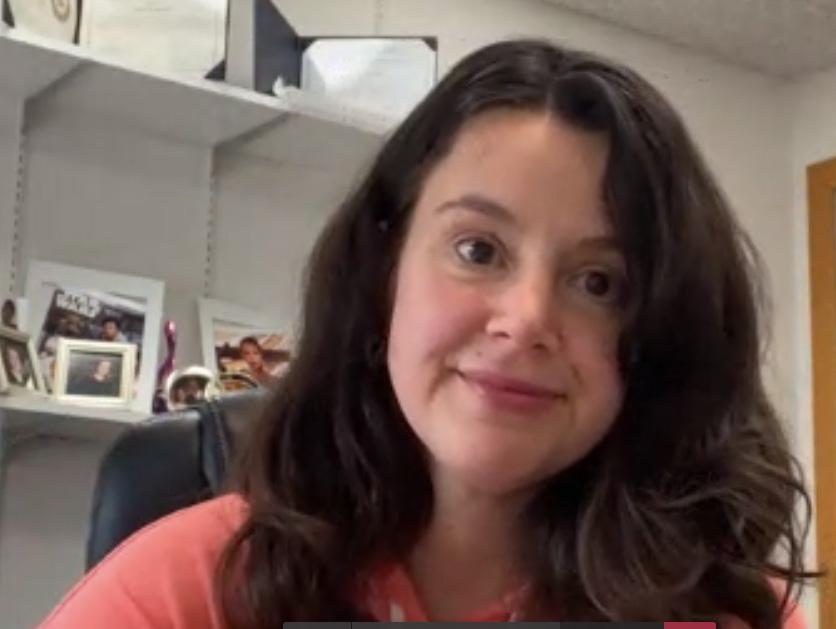
Advertisement

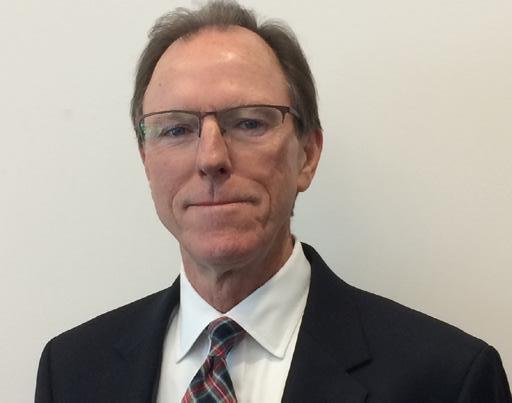
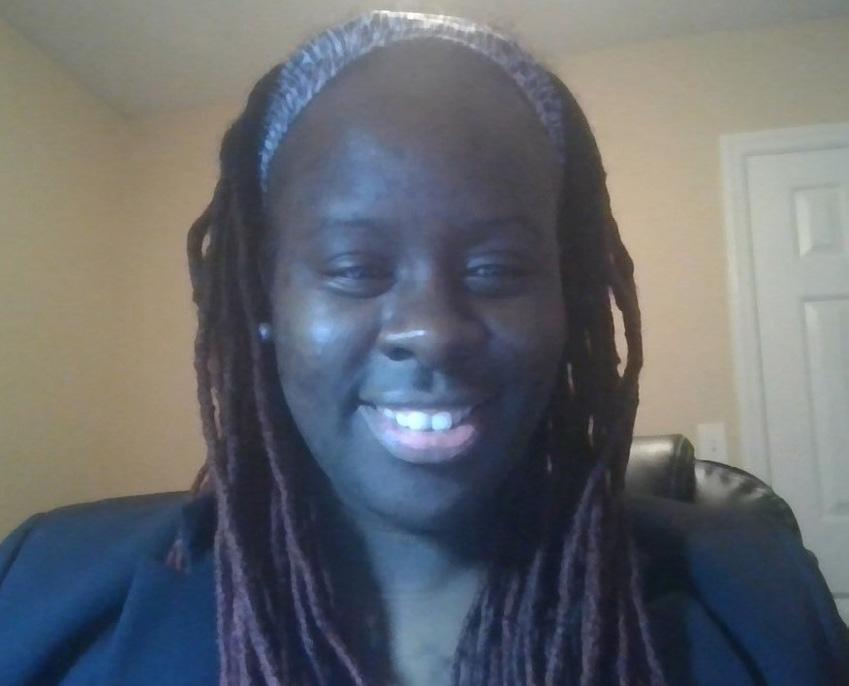
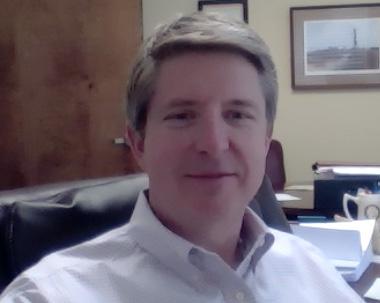
WE HAVE ALL EXPERIENCED DRAMATIC CHANGES TO OUR JOBS AND LIVES AS WE CONTINUE TO NAVIGATE THE COVID-19 PANDEMIC. WE ASKED MEMBERS FROM VARIOUS PRACTICE AREAS HOW THINGS ARE GOING, WHAT HAS CHANGED FOR THEIR PRACTICE AND HOW THEY SEE THE FUTURE OF PRACTICING LAW ADAPTING TO THE TIMES.
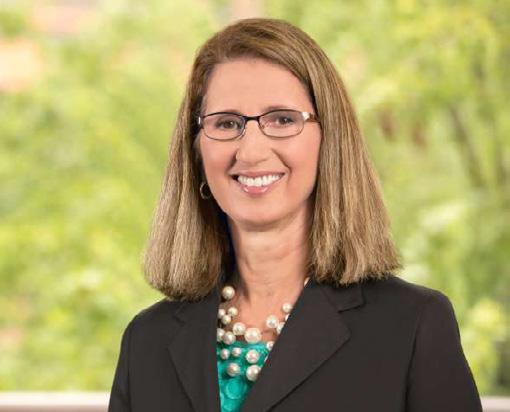
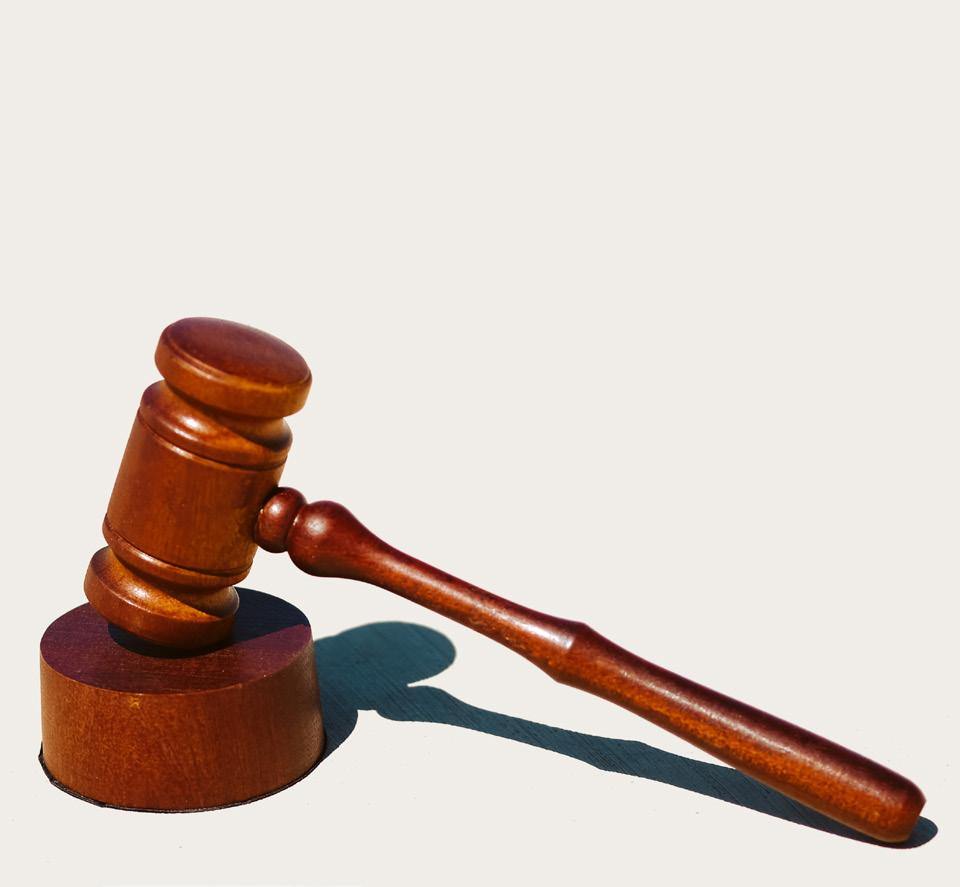
N. LORRIN FREEMAN WAKE COUNTY DISTRICT ATTORNEY
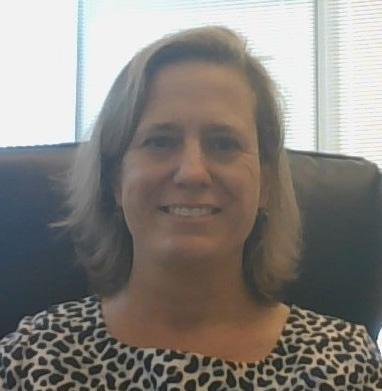
ON MARCH 13, AFTER CONSULTING WITH STAKEHOLDERS in the court system, Chief Justice Cheri Beasley entered an order suspending all but essential hearings. Overnight, a system that handles hundreds of matters daily was substantially shuttered. Fortunately, the court leadership team in Wake County developed a continuity of operations plan (COOP) in response to a catastrophic event under the direction of former Chief Justice Sarah Parker more than 10 years ago; thus, we were in a strong position to respond to the pandemic as news surfaced of its spread.
We have successfully run four criminal courts in the last two months while also developing and implementing plans and telework schedules for court personnel. While the number of arrests has fallen during this time, crime — especially domestic violence — has persisted.
Meanwhile, pursuant to local proclamations and the governor’s executive orders, and in collaboration with law enforcement, I have worked through the issues of which businesses would be allowed to operate under what circumstances. As tensions increased, I’ve worked with law enforcement to manage protests. These have been difficult situations as peoples’ physical health and economic safety have been shaken.
Continuing to ensure that defendants’ rights are protected and that our community is safe during this pandemic has required tremendous interagency collaboration remotely. Devising plans to apply social distancing and public health best practices in traditionally busy courtrooms has been a huge challenge.
While we have been lucky to have good relationships with other system stakeholders, the crisis has made clear how essential such cooperation is. As we move forward, I hope we continue to find ways to collectively solve system challenges. Daily, I am grateful for our courthouse team, the Bar and Wake County for working collaboratively to ensure justice continues to be served. WBF
ON A FRIDAY AFTERNOON IN EARLY MARCH, the Wake County Courts executive team discussed an anticipated order from the Chief Justice that would “close” the courthouse. I found myself thinking similar conversations would be taking place throughout the nation: What is our core business? How do we pare down routine, organized chaos to the bare essentials? Once we exclude and thereby protect the public, how do we protect ourselves?
In one weekend, a dozen three-hour court sessions were reduced to five or six one-hour sessions. In-person jail visits were now via video feed with a telephone handset. Not just the reception lobby, but the reception desk was empty. Law enforcement agencies began writing tickets only for the most egregious traffic offenses. Stores closed, so theft and embezzlement declined. Nightclub brawls became nonexistent. Yet domestic violence first appearances continued unabated.
Public defender staff and attorneys are just like everyone else. Children are at home with no school or child care. Individuals have at-risk conditions or live with a spouse who is at risk. Offices are devoid of laptops, they are all at home. People come in when they need to, and when they can do so and stay safe — whether it’s 6 a.m. or 6 p.m., or a Saturday, Sunday or holiday. The work is done, the incarcerated client is visited and the research that might save a client one day or one decade is done.
Staff comes in on a staggered schedule. Attorneys have a rotating schedule to cover others’ custody cases. Social distancing in the office is expected and respected. No raucous lunch gatherings in the big room. No congratulations or consolation over a trial outcome. The camaraderie is still in the air, just not as loud. Gosh, it will be great when this is over!
The Wake County Public Defender’s Office is ready to counsel, protect and defend as we have always done — just, now with a mask. WBF
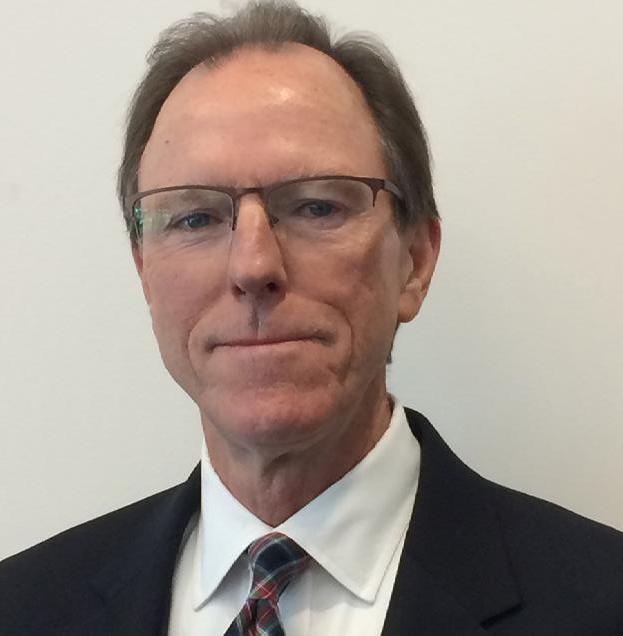
CHUCK F. CALDWELL CHIEF PUBLIC DEFENDER, WAKE COUNTY
BILL D. YOUNG IV HATCH, LITTLE & BUNN, L.L.P.

OUR CRIMINAL DEFENSE TEAM is still adapting to the spread of COVID-19. Our response will further evolve over the next year as more information about the disease develops. In my 27-plus years of law practice, the year 2020 has been unlike any other. One of my best resources has been my younger colleagues, James Little and Aaron Goforth.
The three of us comprise Hatch, Little & Bunn’s criminal defense team. As COVID-19 approached, my colleagues had the foresight to divide our team into “remote” and “office” teams, thereby limiting our physical interaction.
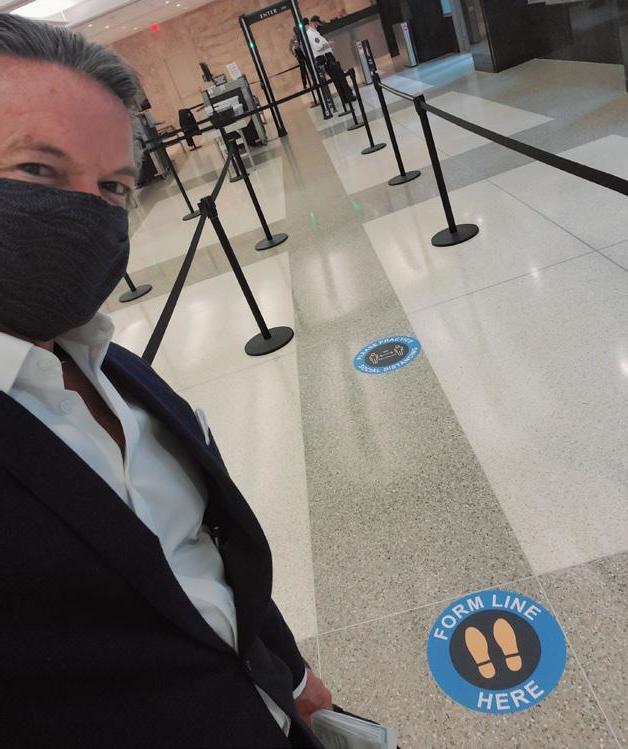
Little manages office operations, meets with clients, works with staff and drives our operations in the firm. Goforth and I are the remote team. Goforth coordinates our team communication and technology, while also handling “traditional practice” from home. If either Little or I need to be quarantined, Goforth is on deck.
For now, I am responsible for the courtrooms and jail. I go directly to these locations to handle matters but otherwise work from home. We anticipate Goforth will join me in the courthouse in summer.
As for office support staff, temperature checks, social distancing measures and rotating schedules have been used. If we spread out and create physical distance, our hope is that it will protect our clients and our team. Since going remote, each morning begins with an 8 a.m. team conference call to prepare the day. We are fortunate in that we had already implemented remote-capable technology pre-pandemic. We continue to evaluate that software along with our practice efficiencies.
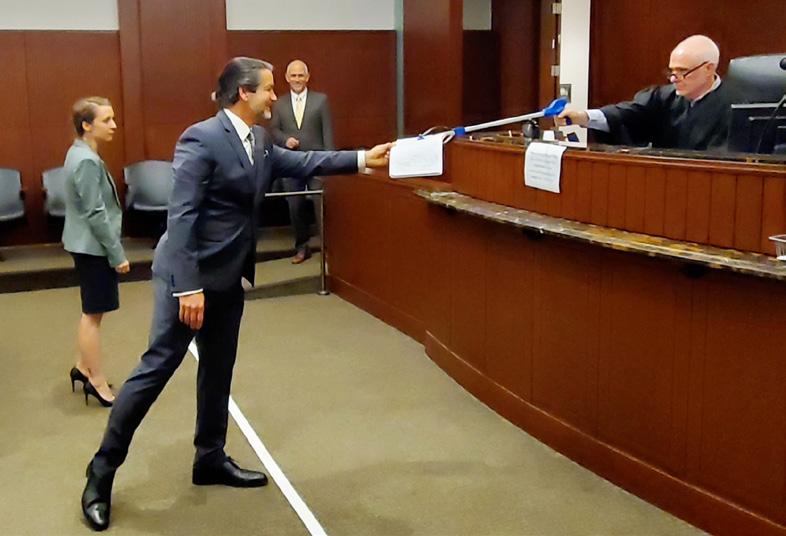
As the Justice Center reopens, we remain flexible about our plans and anticipate modifications. In the meantime, our primary goal is to protect our team, protect our clients and move forward. WBF
IN MY 15 YEARS’ EXPERIENCE AT LEGAL AID, it hasn’t surprised me that another national crisis increases the demand for our services. Legal Aid is meeting the demands, and continued to serve clients despite the challenges of “Shelter in Place Orders.”
In all our work, we began conducting client meetings by phone or via the web. Since we typically used in-person contact, we have pivoted to infuse more trauma-informed practices in our remote client communications. We then tackled how to electronically obtain consent for representation and client signatures, which is challenging when your clients often lack internet or computer access.
I supervise the domestic violence/family law work at our office. Our DV attorneys have courageously maintained their representation of survivors in court during COVID-19 because the court never interrupted protective order hearings. The greatest adjustment has been adapting to the risks involved in going to court. Our DV attorneys began donning masks and gloves and handing them out to clients. We soon recognized we should just give away the pens that our clients signed with at court, too.
I’ve worked with court personnel to advocate for safer practices, including greater availability for remote hearings. Lastly, we’ve spent more time just talking with clients about their legal issues during COVID-19, allaying their fears about safely entering and leaving the courthouse.
Our ability to maintain effective assistance to our clients during this time demonstrates that our remote work is productive, safe and feasible for the future. Remote client meetings and interviews have been helpful for clients who have childcare and transportation issues, along with the challenge of working an hourly wage job. So, we do anticipate maintaining more options for how we meet with clients, obtain needed signatures and work with them generally. WBF WAKE BAR FLYER
AMY VUKOVICH LEGAL AID OF NORTH CAROLINA

JOSUE JIMINEZ ASSISTANT DIRECTOR OF ADMISSIONS, CAMPBELL LAW SCHOOL

ON MARCH 6, as students left their classes before spring break, no one had any idea those would be the last inperson classes of the semester. This pandemic has shown us how much our profession involves in-person interaction. Our courts, law firms and schools have been forced to adapt and look for alternatives to provide the same quality of services.
The greatest initial effect on our law schools were in-person classes. We, fortunately, had a system in place that allowed us to quickly transition to a virtual class experience. Despite some initial struggles, as professors and students adjusted to the technology, it was a fairly seamless transition.
This pandemic has also highlighted many societal inequities. The education system is no exception. Although we switched to a virtual class and final exam format, we recognized the pandemic’s impact on individual students would vary greatly. We kept our building open for students that needed internet and technology access, or just a quiet place to study and work.
The way law schools recruit prospective students and engage incoming classes will also change. During the fall, admissions professionals generally travel to law school fairs and information sessions on college campuses. Now, law schools and LSAC are looking for ways to host virtual fairs and webinars. On-campus events, tours and class observations will also be different. During the summer, we’ve hosted weekly webinars to keep our incoming class engaged.
As we continue to adapt, law schools must strive to preserve the goal of increasing access to the legal profession for everyone. At the same time, law firms must continue to facilitate access to adequate legal representation. Although technology plays a huge role in the way we are navigating this pandemic, we must ensure that the lack of access to it is not leaving people behind. WBF
BEFORE THE PANDEMIC, I preferred keeping work in the office and worked remotely only when a kid got sick or something small needed to be done on a weekend or holiday. This has been true for every job I have had and is especially true for my estate planning practice.
I love meeting with clients in person. I love talking face-to-face with colleagues. Once COVID-19 began to spread, I didn’t have a choice in the matter. My daughters are in elementary and middle school, and in-school classes were canceled. I set up a work area for myself, installed the software that I needed to be effective and productive, and forced myself to get comfortable working at home.
In short, I have adapted — as have my clients, who have been incredibly flexible and kind. I’ve had Zoom meetings and conference calls in lieu of in-person meetings. I’ve talked clients through the process of getting documents signed without me. I even had a masked document signing in my driveway for a client who lived nearby.
We’ve made changes at the office, too, with staggered schedules and fewer in-person meetings to keep the number of people in the office at any given time to a minimum. We wear masks and stay out of each other’s offices. We have office meetings via Zoom and Teams.
We will continue with some version of what we are doing now for the foreseeable future, adapting as we go to make it work even better. When things do return to normal — whatever that looks like — I expect we will bring along tools we have developed to deal with this experience. But, I hope we will be able to have in-person meetings as before. WBF MEGHAN KNIGHT LYNCH & EATMAN, L.L.P.
NEUBIA L. HARRIS
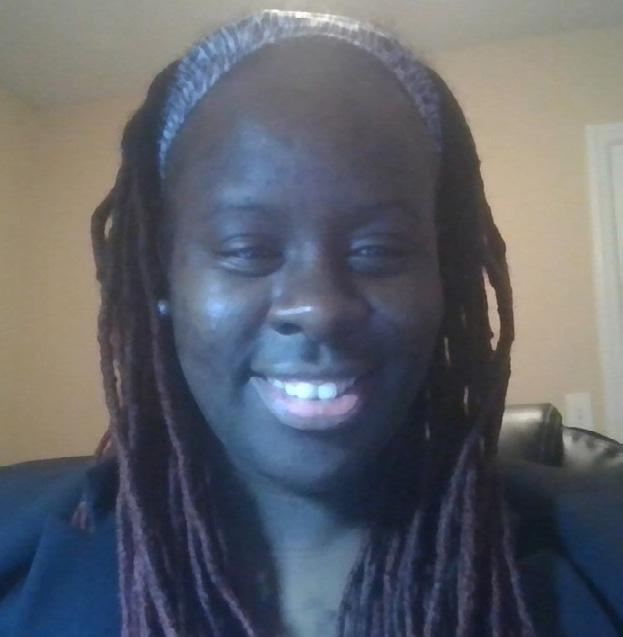
2020 HAS BEEN A DOOZIE. AM I RIGHT? This year has been one of adaptation for all of humanity.
In February, I gave birth to my first child. Less than one month later, the world was entrapped in the global crisis we now know as COVID-19. Suddenly, there were mandates to stay at home unless you were deemed “essential.” My husband is in the medical field and qualified as essential. The directive for household members of essential workers was to not leave the home in the event the essential worker came down with the virus (so someone would be there to keep up your home). “How am I supposed to do that,” I thought. After all, I have a law firm to run.
This is how my brick-and-mortar law firm morphed into a nearly 100% virtual firm. Surprisingly, I have adjusted well to a virtual practice. I find that I am able to focus on a single task, as opposed to multitasking, when working from home. This is likely due, in part, to all calls, meetings and staff check-ins being scheduled instead of occurring impromptu.
I am also able to work at non-traditional times (e.g., before 9 a.m. and after 5 p.m.). For the immediate future, and THE LAW OFFICE OF NEUBIA L. HARRIS, PLLC
possibly beyond, I am utilizing a hybrid practice model — I go into the office a couple of times a week for four or five hours and work from home the remainder of the week.
Perhaps one good thing that has come from all this is that I have been forced to adhere to a good model of balancing work and home obligations. I hope that this part of my “new normal” remains, even after our country is no longer in crisis. WBF
I’VE ALWAYS BEEN A BIT OF A TRADITIONALIST — brick and mortar offices, face-to-face meetings, conference tables, leather-bound books, rich mahogany, suits, ties and handshakes. I was a fan of neither working from home nor video conferences.
As our staff huddled in a conference room on March 13th to watch Chief Justice Beasley’s announcement that court operations were changing drastically, my worldview also began to change dramatically.
Thankfully, our staff was already equipped with laptops and desktop scanners/printers. Our case management software is cloud-based, so client files, case notes, calendars and task lists are managed remotely. We maintain a paperless backup of all documents. Our telephone system allows us to forward calls to our cell phones. For the next two months, members of our firm worked remotely, and we held staff meetings via Zoom each morning at 11 a.m.
We discovered several processes that we’ll implement long term. Electronic service of pleadings (with consent) is beautifully efficient. We utilize the linking feature of our case management software to serve discovery responses and demand packages. Many client meetings can be conducted efficiently, and effectively, via video. Clients are not forced to take time off work, and travel time is reduced.
Though we missed the camaraderie of mingling with colleagues at the courthouse, Kimberly and I were both pleasantly surprised with the ease and efficiency of conducting motions hearings via WebEx. No driving. No parking deck. No walking three blocks in the rain. No security. No elevators.
Without the logistical hurdles associated with physical attendance, professional organization and committee meetings via Zoom may be here to stay. Attending the “All Hands on Deck” collaborative effort Zoom meeting hosted by NCAJ and NCADA will remain a highlight of my COVID-19 experience. I am hopeful the collaboration between various bar members and organizations will remain, long after COVID-19 is in the rearview mirror. WBF
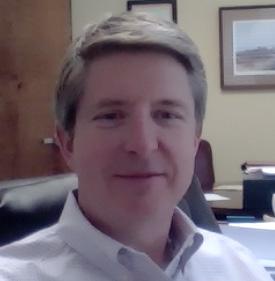
WILL D. OWENS OWENS & MILLER, PLLC
ROSE H. STOUT SMITH DEBNAM NARRON DRAKE
SAINTSING & MYERS, LLP
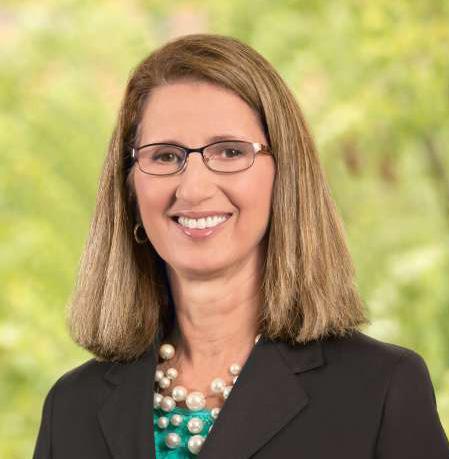
THE PRACTICE OF FAMILY LAW has not been immune from the COVID-19 pandemic. Our landscape has changed drastically in that the “fear” of court is no longer a viable means of settling matters. As family law attorneys, we are now dealing not only with the emotional and physical loss of relationships, but also an uncertain economy.
As lawyers, our in-person visits have shifted to Zoom and/orWebEx meetings. This can be particularly tricky because it is important that we establish and maintain a relationship with our clients to gain their trust, but also to learn who they are.
Our law licenses refer to us as “Attorney and Counselor at Law.” In today’s climate, we are definitely using our counseling skills to tread some pretty dicey, uncharted waters. WBF







